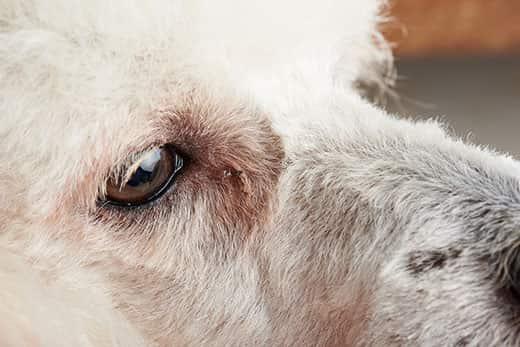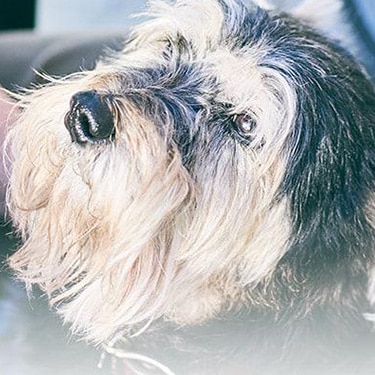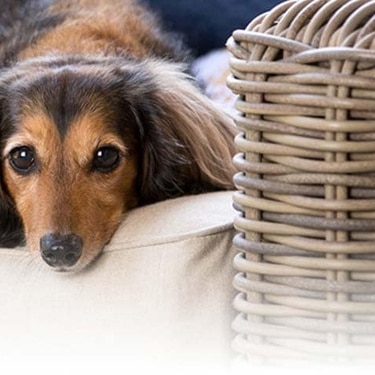
-
Find the right food for your petTake this quiz to see which food may be the best for your furry friend.Find the right food for your petTake this quiz to see which food may be the best for your furry friend.Health CategoryFeatured products
 Puppy Sensitive Stomach & Skin Salmon & Vegetable Stew
Puppy Sensitive Stomach & Skin Salmon & Vegetable StewGentle on stomachs while nourishing skin & supporting development in growing puppies
Shop Now Adult Perfect Weight & Joint Support Chicken & Brown Rice Recipe Dog Food
Adult Perfect Weight & Joint Support Chicken & Brown Rice Recipe Dog FoodThis weight management and mobility support dog food was created with Hill’s unique understanding of the biology of overweight dogs.
Shop Now Adult 6+ Large Breed Chicken Meal, Barley & Rice Recipe Dog Food
Adult 6+ Large Breed Chicken Meal, Barley & Rice Recipe Dog FoodSupports energy level, joint health, and beautiful coat in large breed mature dogs
Shop Now -
DogCat
- Cat Tips & Articles
-
Health Category
- Weight
- Skin & Food Sensitivities
- Urinary
- Digestive
- Kidney
- Dental
- Serious Illness
-
Life Stage
- Kitten Nutrition
- Adult Nutrition
Featured articles Pet Food Storage Tips
Pet Food Storage TipsWhere you store your cat and dog food can make a big difference in the quality and freshness once it is opened. Here are some common questions and recommendations for optimal storage for all of Hill’s dry and canned cat and dog food.
Read More The Right Diet For Your Pet
The Right Diet For Your PetLearn what to look for in healthy pet food & nutrition, including ingredients, quality of the manufacturer, your pet's age, and any special needs they have.
Read More Water
WaterWater is the most important nutrient of all and essential for life. Animals can lose almost all their fat and half their protein and still survive, but if they lose 15% of their water, it will mean death.
Read More -


If your dog's eye is swollen and runny, they may have a condition called conjunctivitis. If that sounds alarming, don't panic. The chances that your pooch has caught this condition, also called "pink eye" are actually quite slim. To get the lowdown on conjunctivitis in dogs, including what causes it and what you should do to help your pet, keep reading.
What Is Conjunctivitis (aka Pink Eye)?
 Conjunctivitis refers to a condition in which the pink tissue inside the eyelid, which is called the conjunctiva, becomes inflamed. There are two types of conjunctivitis in dogs. Infectious conjunctivitis, often referred to as pink eye, is caused by a viral or bacterial infection and is rare, says the Australian online retailer PetPost.
Conjunctivitis refers to a condition in which the pink tissue inside the eyelid, which is called the conjunctiva, becomes inflamed. There are two types of conjunctivitis in dogs. Infectious conjunctivitis, often referred to as pink eye, is caused by a viral or bacterial infection and is rare, says the Australian online retailer PetPost.
More commonly seen in dogs is non-infectious conjunctivitis, which can have a number of possible causes. Typically, these fall along the lines of allergies, an irritating substance getting in the eye, injury or trauma to the eye or a congenital abnormality. Animal Eye Care adds that conjunctivitis may be a sign of a more serious underlying condition, such as a viral infection.
Is It Contagious?
Non-infectious conjunctivitis in dogs is not contagious. If a case of dog pink eye is caused by a rare bacterial infection or a virus, however, Petz Park warns that the condition can be transmitted by your dog to other dogs. If you suspect your dog might have pink eye, it's a good idea to keep your pup separated from other dogs and to wash your hands thoroughly with soap and water after touching them to prevent the infection from spreading to other animals. Some types of bacterial conjunctivitis may be passed on to humans, though this is rarely the case.
If your pooch normally shares food and water, dishes or bedding with other pets, they should have their own dishes and bedding until their conjunctivitis clears up, and they should be washed thoroughly. You should let any additional caregivers, such as dog walkers, dog daycare attendants or pet sitters, know about your dog's condition and the precautions that you're taking to contain it.
Breed Predisposition
While conjunctivitis can occur in any breed of dog or mutt, certain breeds are prone to conditions that can place them at a higher risk of conjunctivitis. According to PetSure claims data, Cavoodles, Golden Retrievers and Groodles, for example, are more likely to develop conjunctivitis.
A condition called entropion, which is when the edge of the eyelid rolls inward, may also cause the conjunctiva to become inflamed. This condition is common to shar-peis and chow chows, among other breeds.


Tasty Tips
Signs of a Problem
As a vigilant pet parent, these are the signs you'll want to keep an eye out for to recognise conjunctivitis in dogs:
- Red or puffy eyes
- Eye discharge
- Eyelids sticking together or squinting
- Swelling of the eyelid lining (the conjunctiva)
- Rubbing or pawing at the eye due to itchiness or discomfort
Should Your Pup See a Vet?
If you notice any of these signs, you should have your pup checked out by a veterinarian as soon as possible. Your vet will determine whether your dog actually has dog pink eye or a non-infectious case of conjunctivitis.
While non-infectious conjunctivitis is not a serious condition in and of itself, it won't clear up on its own without treatment, and it may point to a more serious health problem that needs to be addressed. Additionally, if left untreated, your dog could sustain a permanent eye injury or even vision loss.
Diagnosing Conjunctivitis in Dogs
According to PetSure, the veterinarian will perform a thorough eye examination and may also run tests to determine the cause of conjunctivitis. Diagnostic tests your vet might run include bacterial cultures, a fluorescein eye stain test to check for corneal ulcers or abrasions, a Schirmer's tear test to check your pup's tear production, and a test for glaucoma. They may also perform several blood tests to screen for underlying illnesses.
Treating Conjunctivitis
The course of treatment your vet prescribes ultimately depends on what is causing the conjunctivitis. If they determine that your dog does indeed have pink eye, they'll more likely prescribe a bactericidal or fungicidal ointment to be applied to the eye topically. Your dog might also be given anti-inflammatory medication to help with swelling and discomfort.
If a foreign object is responsible for the irritation and swelling, your pup may need to be placed under general anaesthesia in order for the vet to remove it without risking further eye injury. Of course, if your dog's conjunctivitis turns out to be a sign of a more serious illness, your vet will work with you to take steps to treat the underlying condition.
Helping Your Dog at Home
Natural and home remedies may be helpful in providing relief to your pet, although they should never be a replacement for veterinary care. Wash your hands thoroughly before touching your pet's eyes and face to avoid causing more irritation. You should always check with your vet before applying any herbal or homeopathic remedies to be sure the ingredients are safe and won't interact harmfully with any of their prescribed medications or interfere with treatment of his underlying conditions.
Though treatable, non-infectious conjunctivitis should not be taken lightly. Now that you're armed with knowledge of what to watch for, you'll be able to take prompt action to get your pup a proper diagnosis and treatment to protect their vision and overall health.


Jean Marie Bauhaus is a pet parent, pet blogger, and novelist from Tulsa, Oklahoma, where she usually writes under the supervision of a lapful of fur babies.
Related products

This weight management and mobility support dog food was created with Hill’s unique understanding of the biology of overweight dogs.

Supports energy level, joint health, and beautiful coat in large breed mature dogs

Advanced nutrition shown to support joint health and improve mobility

Gentle on stomachs while nourishing skin & supporting development in growing puppies
Related articles

Though it may seem like your four-legged friend loves nothing more than to nap on the couch, dogs need regular exercise to stay healthy just like people do.

A dog with a sensitive stomach has special needs. Learn more about sensitive stomach symptoms in your dog, what you can do to help sooth your pet’s insides and get recommendations on sensitive stomach dog food.

Learn what you can feed your pregnant or nursing dog to keep her and her new pups healthy.

Selecting the right food for your puppy is a key to quality nutrition and a long, healthy life., Learn more about how to select the right puppy food.

Put your dog on a diet without them knowing
Our low calorie formula helps you control your dog's weight. It's packed with high-quality protein for building lean muscles, and made with purposeful ingredients for a flavorful, nutritious meal. Clinically proven antioxidants, Vitamin C+E, help promote a healthy immune system.
Put your dog on a diet without them knowing
Our low calorie formula helps you control your dog's weight. It's packed with high-quality protein for building lean muscles, and made with purposeful ingredients for a flavorful, nutritious meal. Clinically proven antioxidants, Vitamin C+E, help promote a healthy immune system.




